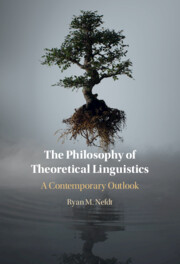Book contents
6 - Signs, Sounds, Action!
Published online by Cambridge University Press: 25 April 2024
Summary
Phonology has generally been neglected as a nexus of philosophical interest despite certain debates within the field both inviting and needing philosophical reflection. Yet, the few who have attempted such inquiry have noted something special about the field and its target. On the one hand, it shares formal and structural aspects with syntax. On the other, it seems to require more literal interpretation in terms of components such as hierarchy and sequential ordering. In this chapter, the nature of the phoneme, the theoretical centrepiece of traditional phonology, comes under scrutiny. The notion, as well as the field itself, is extended to other modalities, such as sign, in accordance with the contemporary trajectory of the field. This extension, and the connections with language and gesture in general, open up the possibility of a philosophical action theory with phonology as its basis. Motor and action theory have been proffered recently in connection with syntax, with little success. However, it’s argued that phonology serves as a better point of comparison. The chapter discusses a range of issues from autosegmental phonology, feature grammar, and sign language, to gestural grammar, motor cognition, and recent 4E approaches to cognition.
- Type
- Chapter
- Information
- The Philosophy of Theoretical LinguisticsA Contemporary Outlook, pp. 137 - 156Publisher: Cambridge University PressPrint publication year: 2024



